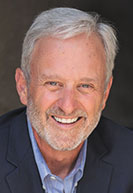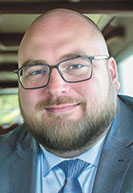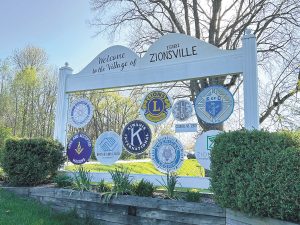Subscriber Benefit
As a subscriber you can listen to articles at work, in the car, or while you work out. Subscribe Now
The town of Zionsville has hired its own in-house counsel, a growing trend among Indiana communities with a population around 30,000 that municipal leaders say helps them stay on top of ever-changing laws.
For Zionsville’s new mayor, John Stehr, the addition simply makes sense.
“In a municipality, pretty much everything we do has a legal component to it,” he said. “Having somebody in house that we can go to directly, who is dedicated to us, who’s not running the meter, you know, is really helpful.”
The town hired Jon Oberlander as its chief legal counsel in February at a salary of $170,000 a year.
Orberlander most recently worked as Carmel’s chief corporation counsel under longtime Mayor Jim Brainard after being promoted from assistant city attorney.
He graduated from Michigan State University Law School in 2010 and immediately after college worked as a staff attorney for the Indiana Department of Health.

Oberlander joined the Town of Zionsville shortly after Stehr and Deputy Mayor Kate Swanson took office in January.
“The stars kind of aligned and, [I] was told about this opportunity, because Zionsville has actually never had in-house counsel before. So it was kind of a unique opportunity,” Oberlander said.
Several other communities of similar size also have in-house counsel, including Michigan City and Crown Point.
While Carmel is considerably larger, its law department reports that having in-house counsel is cheaper than paying $100 per hour or more in legal fees to outside legal counsel.
The city of Brownsburg, with a population of 30,000, hires outside counsel for its legal needs. But city officials acknowledge an increasing need for legal help.
Travis Tschaenn, president of Brownsburg’s Town Council, believes many municipalities are starting to hire in-house counsel instead of contracting out to law firms.
“At a point, a lot of our communities are getting large enough where we need to do a lot of items that can be handled by in-house attorneys versus going out to a law firm to do it,” he said.
As communities grow, so too do workloads, and that becomes costly when hiring out lawyers to take on the list.
Still, Tschaenn said, there are benefits to working with contracted lawyers.
“If you’re with a large law firm, they have many attorneys that specialize in certain areas,” he said. “And for a community, you know, we’ve got many specialized areas that we need.”

Becca McCuaig, Chief Legal Counsel for Accelerate Indiana Municipalities, attests that several “second-class cities” with a population between 34,000 and 599,999, have in-house counsel. and that ultimately, having one depends on the needs of the community they serve.
She said in-house counsel have the benefit of being very familiar with all of a city’s development and projects while also having the authority to offer legal input on them. “They don’t have to get caught up to speed on that inner dialogue,” she said.
Reflecting on his time working with Carmel and the state health department, Oberlander said the biggest difference between those roles has been the actual impact he can see himself making.
In Carmel, he could see that impact more evidently.
While in Carmel, he worked on the contract for the roundabout at 96th and Keystone Avenue.
“I think the big thing for me was being able to kind of see exactly what you’re doing and how it’s helping the community,” he said.•
Please enable JavaScript to view this content.
